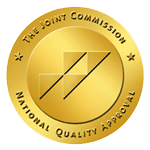The thyroid is a butterfly-shaped gland located in the low anterior neck. It produces thyroid hormone, which helps regulate the body’s metabolism.
Thyroid Nodules
A thyroid nodule is a growth in the thyroid gland. An extremely common condition, it is estimated that 5-10% of the population has a palpable thyroid nodule, and between 30-85% have tiny thyroid nodules that are too small to palpate. For most people with thyroid nodules, the gland produces a normal level of thyroid hormone.
Thyroid Nodules and Cancer
Most nodules are benign, as approximately just 5-10% are cancerous. Patients who are at an increased risk of malignancy are those who:
- Have a history of exposure to ionizing radiation to the neck
- Have a family history of thyroid cancer
- Experience hoarseness, lymph node enlargement, or fixation of the nodule
The vast majority of thyroid cancers are treatable and carry an excellent prognosis.
Thyroid Surgery
A thyroidectomy is a procedure that removes part or all of the thyroid gland.
Surgery rarely necessary, but may be recommended when:
- There is suspicion of cancer.
- The nodule is large in size.
- The nodule is in a substernal location (nodule that grows inferiorly into the chest)
- The nodule cases symptoms such as throat pressure, difficult breathing, swallowing, respiratory distress, or cosmetic disfigurement.
Over-functioning nodules can also be treated by surgery.
The three most common types of thyroidectomy are:
- Total
- Subtotal (removal of most of the glands)
- Hemi (removal of one lobe of the thyroid)
The extend of the operation is determined by the nature and extent of the pathology.
Conventional Thyroidectomy
A conventional thyroidectomy is done under general anesthesia, and takes about 1 to 2 hours to perform. An ENT surgeon makes a horizontal incision in the lower anterior the neck to operate on the thyroid. Recovery is quick, with most patients ambulatory the day of the surgery, and experience little to no pain after the first 24 hours. Most patients also return to work with no restrictions within a week after surgery.
Endoscopic Thyroidectomy
Dr. Parikh is the only surgeon in metro-Atlanta who provides this option to patients.
While performing an endoscopic thyroidectomy, Dr. Parikh works through an incision that is about one-third the size of a normal incision. This method drastically reduces scarring and speeds recovery.
Using video cameras and slender instruments, Dr. Parikh gains access to the thyroid by pushing muscles aside muscles rather than cutting through them. This not only significantly reduces the incision size, but decreases post-operate pain and risk of bleeding. Video monitoring equipment attached to the endoscope magnifies the anatomy about 20 times, which allows for safe and effective removal of the diseased thyroid gland.
An endoscopic thyroidectomy takes approximately 45 minutes. Most patients go home within a few hours and return to work within 3 to 5 days after surgery.
Call (678) 483-8833 to learn more about how the Northwest ENT Surgery Center can treat thyroid nodules.

